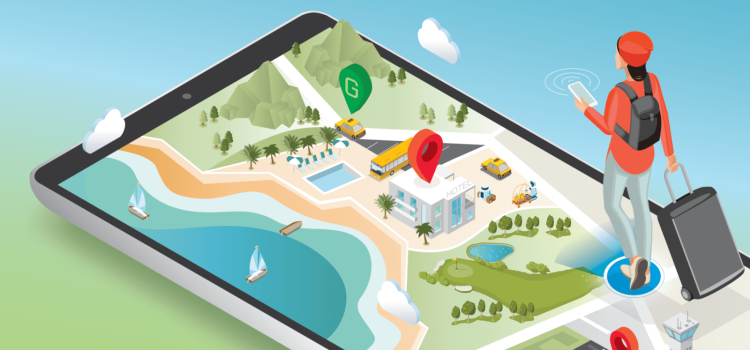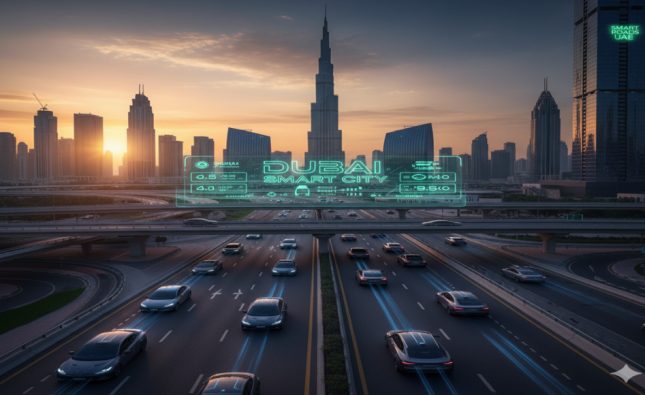
In an era marked by rapid technological advancement, the travel industry is undergoing a transformative phase. From the way we book flights to the experiences we have at our destinations, technology is at the forefront of reshaping the future of travel. In this comprehensive article, we will explore the top tech trends shaping the future of travel, offering insights into how these innovations are redefining the industry.
Artificial Intelligence
Artificial Intelligence (AI) and Machine Learning (ML) are revolutionizing the travel industry by providing personalized experiences and optimizing operations. AI-powered chatbots and virtual assistants enhance customer service by offering real-time assistance and recommendations. Machine learning algorithms analyze vast amounts of data to predict travel trends, enabling companies to tailor their offerings to individual preferences.

- Personalized Recommendations: AI-driven platforms analyze user behavior to suggest personalized travel itineraries, accommodations, and activities.
- Customer Service: Chatbots and virtual assistants provide instant support, answering queries and resolving issues efficiently.
- Predictive Analytics: Machine learning models forecast demand, helping airlines and hotels optimize pricing and inventory management.
Internet of Things (IoT)
The Internet of Things (IoT) is connecting devices and systems, creating a seamless travel experience. From smart luggage to connected hotels, IoT is enhancing convenience and efficiency for travelers.
- Smart Luggage: IoT-enabled luggage comes with features like GPS tracking, remote locking, and weight sensors, ensuring a hassle-free journey.
- Connected Hotels: Smart rooms equipped with IoT devices allow guests to control lighting, temperature, and entertainment systems through their smartphones.
- Real-time Tracking: IoT sensors enable real-time tracking of flights, baggage, and transportation, providing travelers with up-to-date information.
Augmented Reality
Augmented Reality (AR) and Virtual Reality (VR) are transforming the way travelers explore and experience destinations. These technologies offer immersive experiences, from virtual tours to interactive maps.
- Virtual Tours: VR allows travelers to take virtual tours of destinations, hotels, and attractions, helping them make informed decisions.
- Interactive Maps: AR-powered maps provide real-time information and navigation, enhancing the exploration of new places.
- Immersive Experiences: VR experiences enable travelers to immerse themselves in cultural and historical landmarks from the comfort of their homes.
Blockchain Technology
Blockchain technology is enhancing transparency, security, and efficiency in the travel industry. Its decentralized nature ensures secure transactions and data integrity.
- Secure Payments: Blockchain enables secure and transparent payment processes, reducing the risk of fraud.
- Identity Verification: Blockchain-based digital identities streamline the verification process, enhancing security and reducing check-in times.
- Loyalty Programs: Blockchain facilitates the creation of interoperable loyalty programs, allowing travelers to earn and redeem points across different platforms.

Biometric Technology
Biometric technology is streamlining the travel experience by enhancing security and reducing wait times. From facial recognition to fingerprint scanning, biometrics are becoming integral to travel processes.
- Facial Recognition: Airports and airlines are implementing facial recognition systems for check-in, security, and boarding, expediting the process.
- Fingerprint Scanning: Hotels and rental services use fingerprint scanning for seamless check-ins and access control.
- Iris Scanning: Iris scanning technology enhances security at border control and immigration checkpoints.
Autonomous Vehicles
Autonomous vehicles are poised to revolutionize transportation within the travel industry. Self-driving cars, buses, and shuttles offer convenience, safety, and efficiency for travelers.
- Self-driving Taxis: Autonomous taxis provide convenient and cost-effective transportation options for travelers.
- Airport Shuttles: Self-driving shuttles enhance the efficiency of airport transfers, reducing wait times and improving passenger experience.
- Tour Buses: Autonomous tour buses offer guided tours with advanced safety features and real-time information.
Sustainable Technologies
Sustainability is a growing concern in the travel industry, and technology is playing a crucial role in promoting eco-friendly practices. From energy-efficient transportation to sustainable accommodations, tech innovations are driving the green travel movement.
- Electric Vehicles: The adoption of electric vehicles reduces carbon emissions and promotes eco-friendly transportation options.
- Green Hotels: Smart energy management systems in hotels optimize energy consumption, reducing environmental impact.
- Eco-friendly Apps: Mobile apps provide travelers with information on sustainable practices, eco-friendly destinations, and green travel options.
Mobile Technology
Mobile technology continues to be a driving force in the travel industry, offering convenience and accessibility. Mobile apps and platforms enhance every aspect of the travel experience, from booking to navigation.

- Mobile Booking: Travel apps enable seamless booking of flights, hotels, and activities, providing real-time availability and pricing.
- Digital Wallets: Mobile payment solutions and digital wallets offer secure and convenient transactions for travelers.
- Travel Guides: Mobile apps provide comprehensive travel guides, offering information on attractions, restaurants, and local experiences.
Conclusion
The travel industry is on the cusp of a technological revolution, with innovations reshaping the way we explore the world. From AI and IoT to AR and blockchain, these top tech trends are enhancing convenience, security, and sustainability in travel. As technology continues to evolve, the future of travel promises to be more personalized, efficient, and immersive than ever before.










